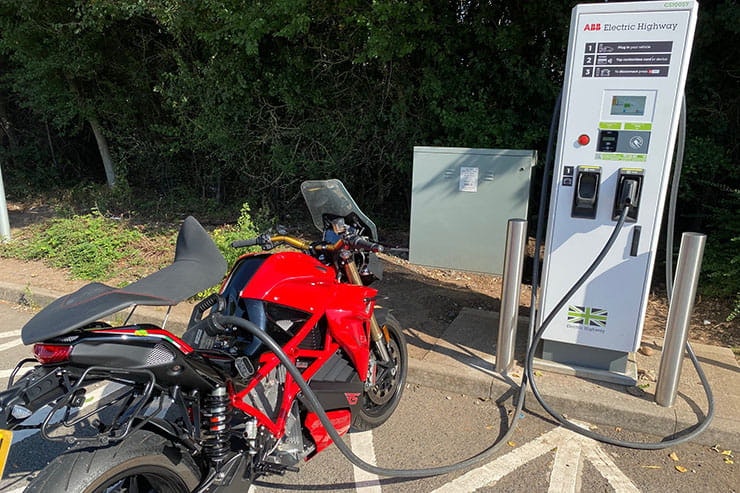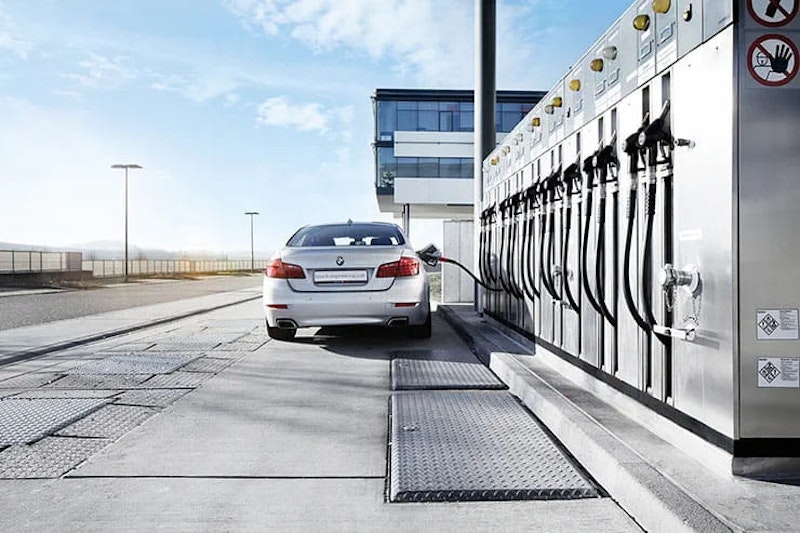Biofuels could earn the combustion engine a stay of execution
Content and Features Writer
07.07.2022
The days of filling your motorcycle up with fossil fuel are (soon-to-be) officially numbered with widespread legislation around the world setting a deadline of between 2035 and 2040 for the ban of all transportation that drinks from the petrol pump.
While the exact timeline differs depending on which country you are reading this from, the general consensus is that in a decade’s time if you walk into a car or motorcycle showroom you’ll be leaving with an EV.
It’s no secret this is an eventuality that isn’t being relished by the motorcycling community with the compromises of electric power - at least today - negating many of the justifications for purchasing a two-wheeler in the first place.
Last month the European Union Energy Council detailed its ‘E.U Fit for 55’ scheme, so-called for its target of having a 55% reduction on harmful vehicle emissions by 2030. At the heart of this push is its move to ban the sale of new vehicles powered by fossil fuels by 2035.
It is a firm deadline that hasn’t won universal approval among the 27 countries within the EU, with Italy leading a motion with support from Portugal, Bulgaria, Romania and Slovakia to delay the ban until 2040.
Read our ‘Synthetic Fuel: fact and fiction’ story from 2017 here
However, though it has ultimately failed to achieve this, it has given rise for an alternative proposal to be explored, one that could see models still sold with an ICE, by expanding the use of biofuels and synthetic fuels.
Biofuels eschew the fossil fuel process by using chemical reactions, fermentation, and heat to break down the starches, sugars, and other molecules in plants.
While not a new phenomenon, biofuels are more widely used than one might think with a number of haulage firms making the switch to cut down on costs and emissions, though it would require a major upturn in the production of such material for it to be widely used.
Synthetic fuels, meanwhile, are created with the help of renewable energy, thus achieving an almost net zero impact to the environment in terms of emissions. It is this particular area that has made huge strides in recent years, though its impact has been overshadowed by the huge weight of government-level support for going electric.
Even so, it is a solution that could help to work in the motorcycle industry’s favour. Indeed, incoming legislation has been logically developed around the car, but motorcycles are often found looped into the same rulings despite the environmental effect of petrol fuelled PTWs being significantly lower.
However, electric power demands fewer compromises on a large car that carries more people, with bikers by contrast facing up to the prospect of only having heavier, more expensive and range-restrictive motorcycles available.
As such, the industry is staring down the barrel of a difficult 15 years potentially. Electric take up has been very slow so far, while manufacturers have been hesitant to begin pumping significant resources and investment into developing electric models until the EV market gets some momentum.
It’s led to something of a ‘chicken and egg’ scenario in that buyers have few models to choose from, but manufacturers don’t have enough buyers to sell to in order to justify the expense.
As such, due to the general frugal benefits of riding a motorcycle rather than driving a car, solutions such as synthetic fuels powering an ICE that works in tandem with a hybrid electric powertrain could help make the transition less painful once the 2035 deadline comes around.
Not that everyone is on board though, with the more hard-line environment-conscious figures complaining it sets a bad precedent if the terms of the EU’s proposal is tinkered with.
"The climate crisis is now and we already have a scalable zero-emission solution in electric cars," said Alex Keynes, Transport & Environment clean vehicles manager. "We can’t carve out exemptions for hypothetical solutions that don’t exist yet."
It should be pointed out here that this refers to the European Union’s plan to ban the sale of fossil fuelled vehicles by 2035. The UK is understood to be targeting the same deadline, though - depending on which government is in charge over the next few years - there is a very real possibility this could be brought forward still with 2032 also mooted.
Share on social media:

